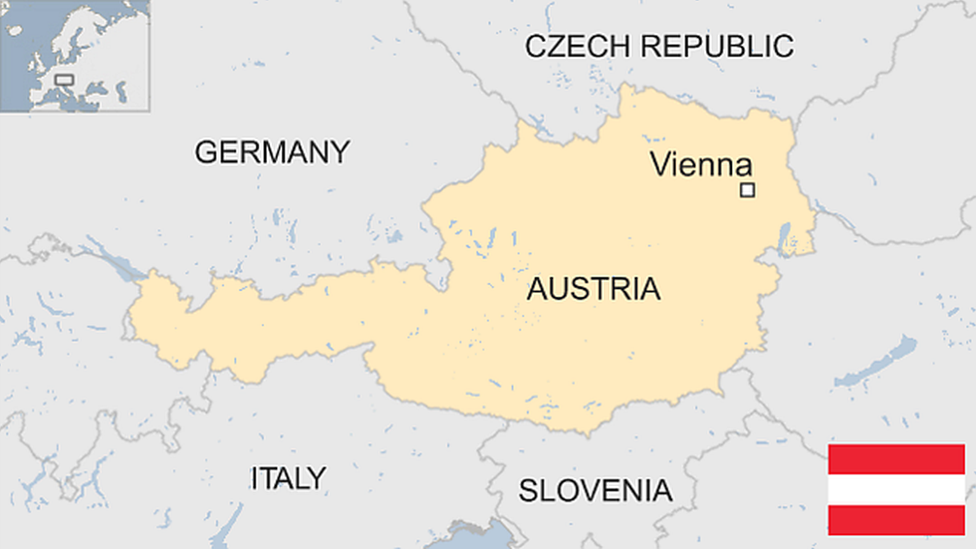Shock as Austrian Chancellor Faymann quits
- Published
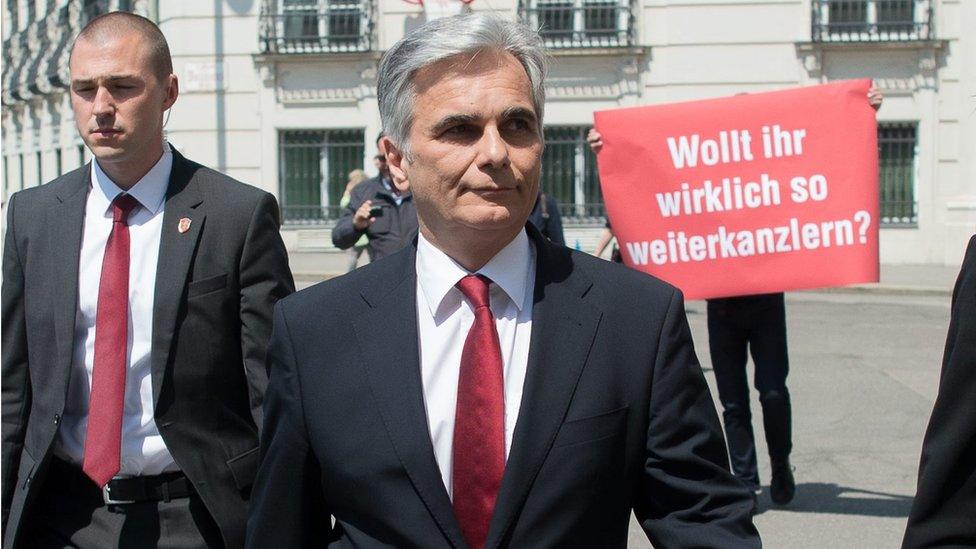
Shortly before Mr Faymann resigned a protester asked: "Do you really want to carry on like this as chancellor?"
Austrian Chancellor Werner Faymann has resigned after losing the support of Social Democratic party colleagues.
Mr Faymann came to power in 2008 but has faced criticism within his party since the far right won the first round of presidential elections last month.
He told a news conference that Austria needed a chancellor who had his party "fully behind him".
Deputy Chancellor Reinhold Mitterlehner is to take over as chancellor on an interim basis.
Mr Mitterlehner, the leader of the junior party in the governing coalition, told Austrian news agency APA that he saw no need for fresh elections.
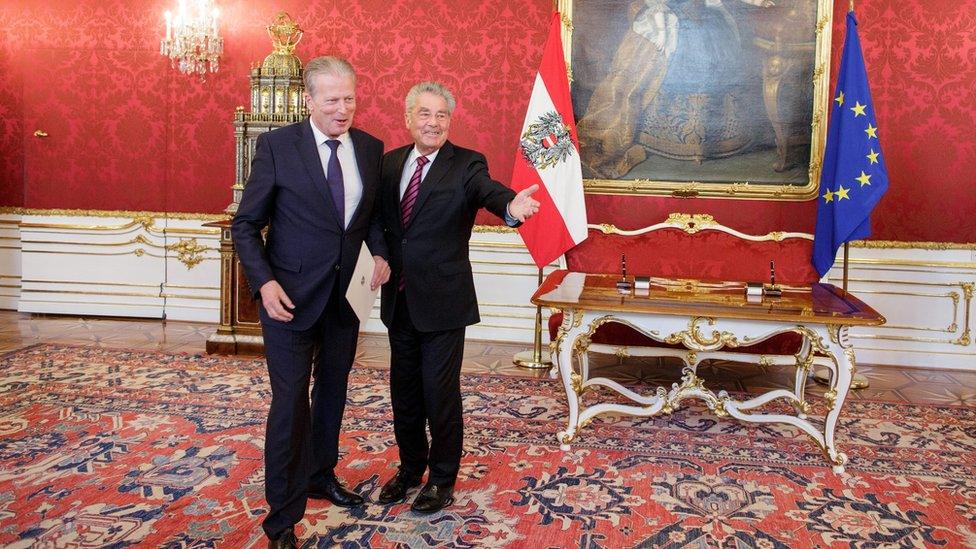
Reinhold Mitterlehner (left) became acting chancellor at a meeting with President Heinz Fischer on Monday afternoon
In his surprise resignation statement on Monday morning, Mr Faymann called for the government to make a new start.
"I'm stepping down from my role as chancellor and SPO leader," he said, acknowledging he had lost support within the party.

Faymann pays the price - by Bethany Bell, BBC News, Vienna
The two centrist parties which have dominated politics in Austria since World War Two have been losing ground to the far right for years.
It came to a head in April, when they were both trounced by the Freedom Party in the first round of the presidential elections.
But it is Mr Faymann who has now paid the price.
His Social Democrats are deeply split.
The pragmatists want to lift the ban on forming coalitions with the Freedom Party, something Mr Faymann always refused to do. The liberal wing of the party is highly critical of the increasingly tough line he took on asylum seekers and migrants.
Some are hoping for a new beginning. Others fear the political turmoil will strengthen the far right still further.

Mr Faymann singled out the challenges of bringing down unemployment, as well as social cohesion and the refugee crisis. He said he was "very grateful to have been able to serve this country".
Earlier this year, he yielded to pressure from his coalition partner, the conservative People's Party, to cap the number of people allowed to claim asylum in Austria after the arrival in 2015 of more than 90,000 asylum seekers.
That decision prompted criticism from trade unionists and the SPO's youth wing, BBC Vienna correspondent Bethany Bell reports.
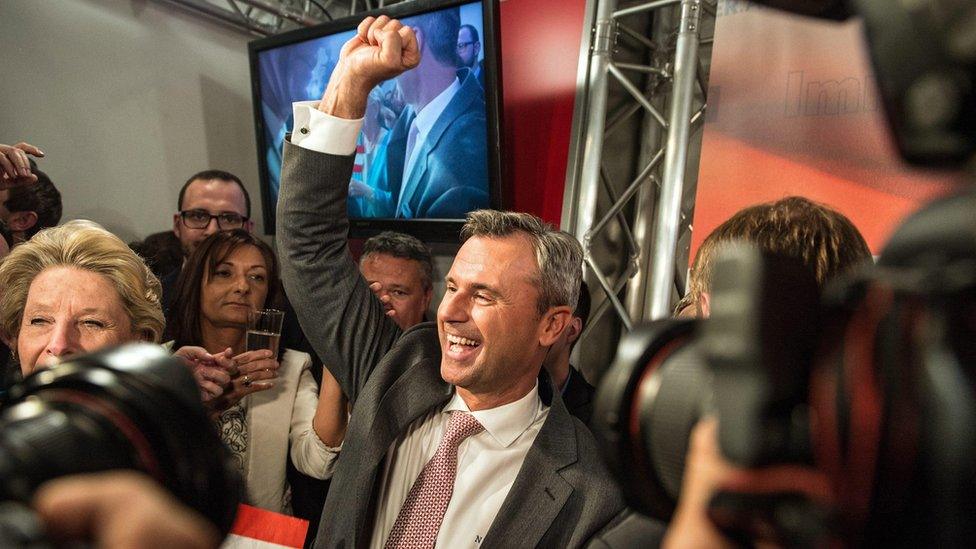
Mr Hofer's first-round victory (centre) has shaken up the two-party grip on Austrian politics
There was further pressure on Mr Faymann after far-right Freedom Party candidate Norbert Hofer won the first round of the presidential election a fortnight ago. The green candidate was second while Mr Faymann's Social Democrats and the centre-right People's Party failed to make it to the run-off vote on 22 May.
"I'm firmly convinced that this country is strong enough to face the challenges of the future," the outgoing chancellor told reporters.
Mr Faymann had told few party colleagues of his decision to stand down. Although he still had the support of the majority of the SPO, he believed his backing was not sufficient to keep going.
Mr Mitterlehner became acting chancellor at a meeting with the Austrian President Heinz Fischer on Monday afternoon.
Meanwhile Vienna's Mayor Michael Haeupl has been named acting leader of the SPO at a meeting of the party's executive.
However it is unclear who will lead the party and take over as chancellor in the longer term.
Parliamentary elections are not due until 2018.
- Published24 April 2016
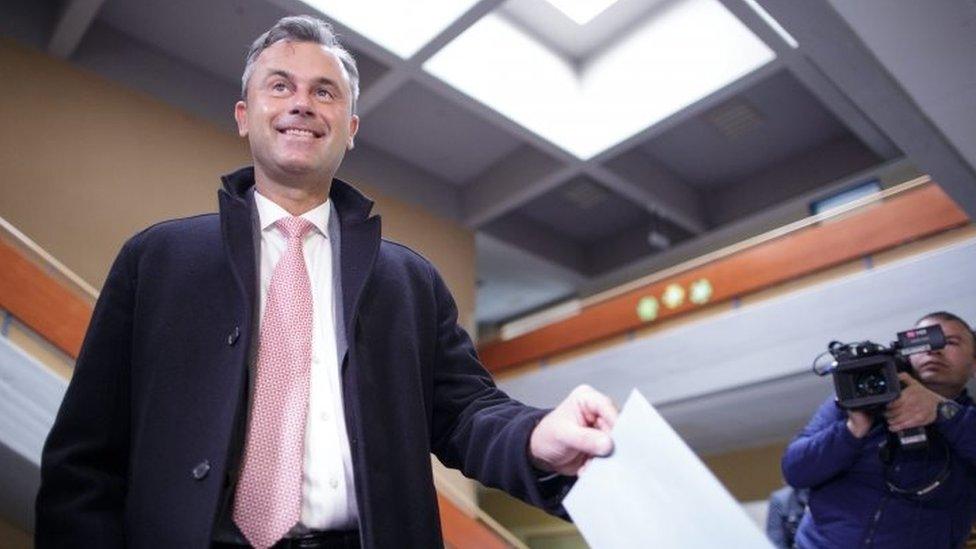
- Published28 April 2016
- Published14 April 2023
